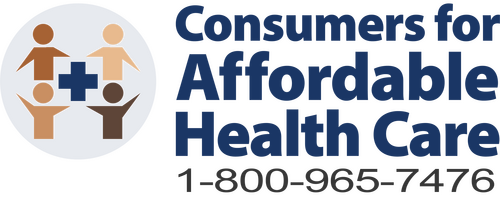February, 2026
The 2026 statewide survey, Examining Maine Voters’ Views on Health Care Affordability and Medical Debt in Maine, shows nearly half of all Maine households, more than four in ten, have incurred medical debt in the past two years. One out of three households with such debt owe $5,000 or more. Survey results also revealed:
- Eight out of ten Mainers who carry medical debt reported a hospital-based service contributed to their debt. These Mainers pointed to necessary surgeries, medical tests and diagnostic services, and emergency treatment as primary sources of their debt.
- Two out of three Maine households reported adverse financial impacts because of medical bills, including struggling to pay for basic necessities such as food, heat, or housing, needing to take on additional debt, or having to rely upon savings.
- Two out of three Maine families have been contacted by a collection agency over a medical bill.
Mainers shared their concerns about medical costs and the wide-ranging impacts those costs have on their ability to access the care they need:
- Six out of ten who have commercial insurance said they would be more likely to receive medical services if their out-of-pocket expenses were lower.
- Another six out of ten stated a major medical event would be a financial disaster for the households.
- Four out of ten have lost sleep worrying about medical costs.
View the full survey results here.
Why This Work Matters
Expanding access means closing health coverage gaps, promoting comprehensive coverage, and notifying regulatory authorities when insurance companies fail to follow the law. That’s why Consumers for Affordable Health Care has been at the forefront of protecting consumers and ensuring access for more than three decades.
You Can Help!
If you would like your perspective considered as we develop policies to benefit Maine consumers, Tell Us Your Story.
2025
CAHC's 2025 survey that showed nearly half of Maine households have incurred medical debt within the past two years. The data reveals that, while recent state and federal efforts to increase access to affordable health coverage have helped many Mainers, many still struggle with high health care costs and medical debt. Key findings from the Examining Voter Views Towards Health Care in Maine, included:
- Almost half of Maine households surveyed incurred medical debt in the past two years. A large majority – two out of three – had health insurance at the time.
- Most Mainers with medical debt attribute it to a hospital service; nearly half report prescription drug costs were also implicated.
- Half of Maine families report a negative impact on their credit scores due to medical debt; most say they had difficulty obtaining loans or employment as a result.
- Half of Maine families reported having a higher-than-expected copayment for a prescription drug. One out of three say they postponed filling or refilling a prescription, split pills in half, skipped doses of medicine, or did not fill a prescription at all due to cost.
- Half of Mainers with commercial insurance experienced difficulty affording their deductibles; nearly as many struggled to pay their coinsurance, premiums, or copayments and more than a quarter of Mainers with commercial coverage have had a claim denied by their insurance company.
February 2024
New survey shows most Mainers support transparent hospital prices, limits to unexpected fees, confirming concerns about health care costs and medical debt and showing strong support for price transparency and limits on what hospitals can charge as “facility fees”
Key findings from the Perceptions of Health Care Affordability and Hospital Facility Fees in Maine survey include:
- Half of all surveyed Mainers find it difficult to afford health care; many responded it is very difficult to afford health care.
- Four out of ten Mainers have taken on medical debt within the past five years; three out of four who took on medical debt in the past five years still have that debt.
- Two out of three Mainers say they would have difficulty paying a $500 medical expense.
- Hospital-owned facilities are, by far, the most common source of medical debt, with six out of ten saying the largest share of their debt came from a hospital facility.
- Almost eight out of ten Mainers would support a law that banned hospitals from charging facility fees outside of a hospital – a clear majority strongly support that type of ban.
- Nine out of ten would support laws that require medical providers to disclose their facility fees to patients before they receive treatment.
The survey results, coupled with the Task Force to Evaluate the Impact of Facility Fees on Patients recommendations, show there is a need – and resounding support for – both transparent prices and additional steps to address rising health care costs and medical debt in Maine. The full survey can be viewed here.
May 2023
Views of Maine Voters On Health Care Affordability Results of a Survey Conducted on Behalf of Maine Consumers for Affordable Health Care
- Two out of three Mainers with commercial insurance are concerned about unexpected medical expenses.
- One in three Mainers struggled to pay for basic necessities, such as food, heat, or housing, within the past two years, as a result of a medical bill. Among those who struggled to pay for necessities, nearly three quarters reported they experienced this as the result of a hospital bill.
- Nearly one in three Mainers reported they had been contacted by a collection agency about a medical bill within the past two years, of which more than 80% said they were sent to collections as the result of a hospital bill.
Download the report here for full survey results.


